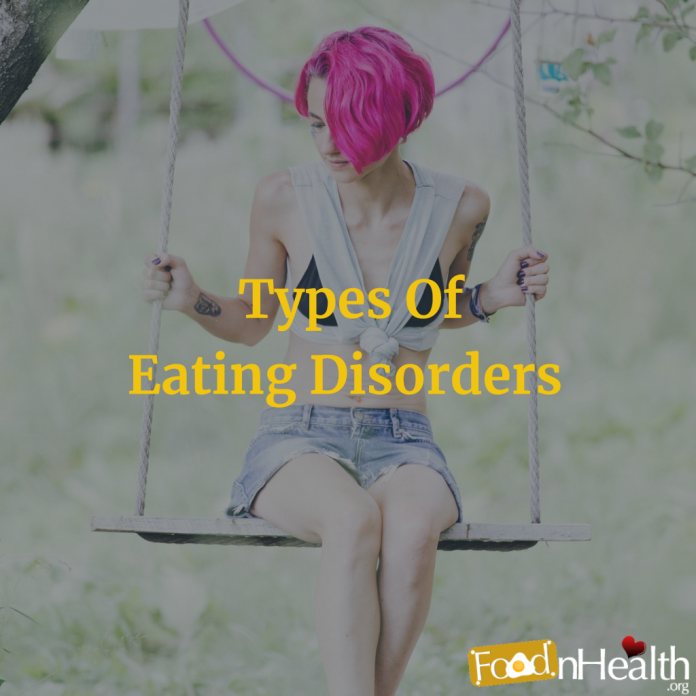If you’re like a lot of modern people these days, you might say “eating is life.” Unfortunately, it’s undeniably a fact that some members of the population do experience difficulty eating in some way. Sometimes, it can go in such a way that the thought of eating less, eating more, or just eating can impede their ability to function. Unfortunately, these eating disorders aren’t easily recognizable, and can strike only when it’s too late. This doesn’t mean it’s impossible to remedy, however. Here’s an article on the types of eating disorders you may not realize you have.
Eating Disorders: The Causes
Unfortunately, professionals have yet to discover an actual accurate and concrete cause of eating disorders. Professionals do believe that eating disorders can be caused by a lot of factors.
- First is genetics, whereas studies on twins separated by birth and adopted by different parents have observed that when one twin develops an eating disorder, there’s a 50-percent chance that the second children will develop one as well.
- Second, in terms of personalities, perfectionism, impulsivity, and neuroticism are personality traits often linked to acquiring and developing eating disorders.
- Third was culture, where perceived pressure to look a certain way, or media and cultural exposure to such an ideal “look” can coerce someone into having an eating disorder.
Eating Disorders: The Types, The Risks
A popular maxim in life is that prevention is often better than cure, and such is the same with eating disorders. Knowing what to look for can greatly benefit you and your situation, especially if you sense you have eating disorders. If you feel that you do, then you should visit institutions such as Open Sky Psychology for assistance. Here are some of the signs and types of eating disorders you may not realise you have:
- Anorexia nervosa is perhaps the most commonly-known eating disorder. A lot of people with anorexia see themselves as overweight even when they’ve become dangerously underweight. People with anorexia tend to constantly avoid eating certain types of food, monitor their weight gain, and even be severely restrictive with calories. They tend to attach their notion of self-esteem with their perceived body shape, but sometimes they tend to be in denial as well.
- Bulimia nervosa, like anorexia, is a “popular” eating disorder. Unlike anorexia, bulimia nervosa have sufferers eating a lot of food in a short period, and these continue until the person becomes uncomfortably and painfully full. Unfortunately, sufferers often feel as though they can’t stop eating or control how much they’re consuming during a binge session.
- Binge eating disorder is a recent type of eating disorder that has been discovered recently. These types of individuals are often correlated with those with bulimia, as they often eat a lot during a short span of time and even have some perceived lack of control over their binges. However, binge eaters don’t restrict calories or purge through excessive exercise or vomiting to compensate.
- Pica is also another new condition that was recently recognized as one of the many eating disorders out there. Those who have pica tend to crave for substances that aren’t food such as cornstarch, laundry detergent, pebbles, wool, cloth, hair, paper, soap, chalk, soil, dirt, and ice. Individuals who suffer from pica tend to be likely to experience gut injuries, infections, poisoning, and even nutritional deficiencies. Unfortunately, those with pica can be in lethal situations depending on what they consume.
- Rumination disorder is another newly-recognized disorder. This is a condition where the sufferer regurgitates the food they’ve recently swallowed or chewed. And then afterwards, they re-chew the food and spit it out again. These often occur 30 minutes after a meal. When children and infants develop this disorder, it generally disappears on its own. When adults develop this, however, they often need assistance to recover from the disorder.
Conclusion: Eating Disorders Aren’t Always Obvious
Eating disorders appear to be a simple matter of knowing what to eat or what not to eat, and to mentally-condition oneself on handling food-related situations. Unfortunately, based on the above, it’s really more than just handling “eating.” Sometimes, eating disorders can get very bad that they end up impeding one’s capability to function on a daily basis, and as such learning about them, like from the above, can be a good way to be more open to understanding and in tackling these issues much better.























